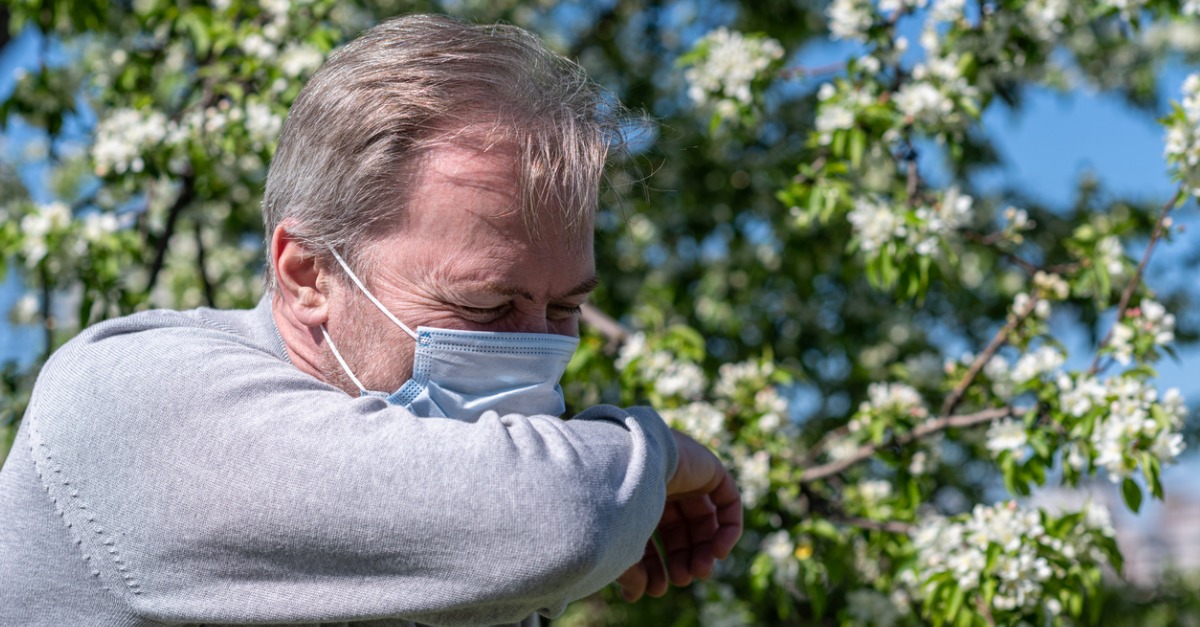The arrival of warm spring temperatures, budding flowers, and longer daylight hours are making it easier and more pleasant to spend time outside. But with enjoyment of the great outdoors comes pollen and other possible airborne irritants.
So how do you know if your new congestion, sneezes, cough, or lack of energy mean you have regular spring allergies, or symptoms of the still-lingering COVID virus?
Similarities and Differences in Symptoms
There are some clear symptoms of COVID-19 and seasonal allergies which are very alike, including:
- Headache
- Runny nose
- Difficulty breathing
- Tiredness
- Cough
- Sore throat
But COVID-19 often comes with other symptoms that allergies do not:
- Loss of taste or smell
- Fever or chills
- Upset stomach or vomiting
- Diarrhea
If you’re unsure whether your allergies are simply coming home to roost, or you have something more serious, paying attention to your eyes may be the greatest help. Both the CDC and the Mayo Clinic assure that if you have itchiness in your nose, eyes, mouth, or inner ear — that’s more likely to be allergies. “Coronavirus symptoms generally do not cause those uncomfortable itchy, watery eyes,” the American Academy of Ophthalmology also agrees.
A COVID Test Will Help You Know for Sure
After two years of the COVID pandemic, it’s understandable if you are exhausted by safety rules and ever-changing information. Our advice is to simply get a COVID test when you fear you may have the virus. A test can not only help your state of mind, but it can also reduce the spread to your family and community.
Free, at-home testing kits are available at our pharmacy location in Palmetto, Georgia.
Vaccination is the Key
While you can’t be vaccinated against seasonal allergies, you can for COVID-19. If you are worried ahead of time that you won’t know the difference between allergies or the virus, receiving a vaccine can boost your confidence. Free vaccinations are available without an appointment at our mass vaccination center.
There are several other benefits of being vaccinated, beyond gaining clarity around what could be causing your congestion. They are safe and highly effective, but our caring specialists are happy to talk through any questions or concerns you may have.
Maintain Continuous Protection
Believe it or not, the face mask that provides a shield between you and airborne COVID-19 particles may also reduce your allergy symptoms. A November 2020 study published in Journal of Allergy and Clinical Immunology and shared widely to the public by VeryWell Health shows that for some people, even a simple cloth mask can reduce the physical impact of seasonal allergies. “Although masks aren’t going to be the thing that resolves all your allergy issues, it’s a good tool to have in your toolbox,” says allergist Amina Abdeldaim, MD. “On your highest pollen days, a mask could really help alleviate symptoms.”
Do keep in mind to wash your mask regularly, however, as small pollen particles may still cling to it.
Whether you’re suffering from allergies or something more serious, our team at YourTown Health is here to provide care for all our neighbors in need. Visit our website to learn more about our services.

